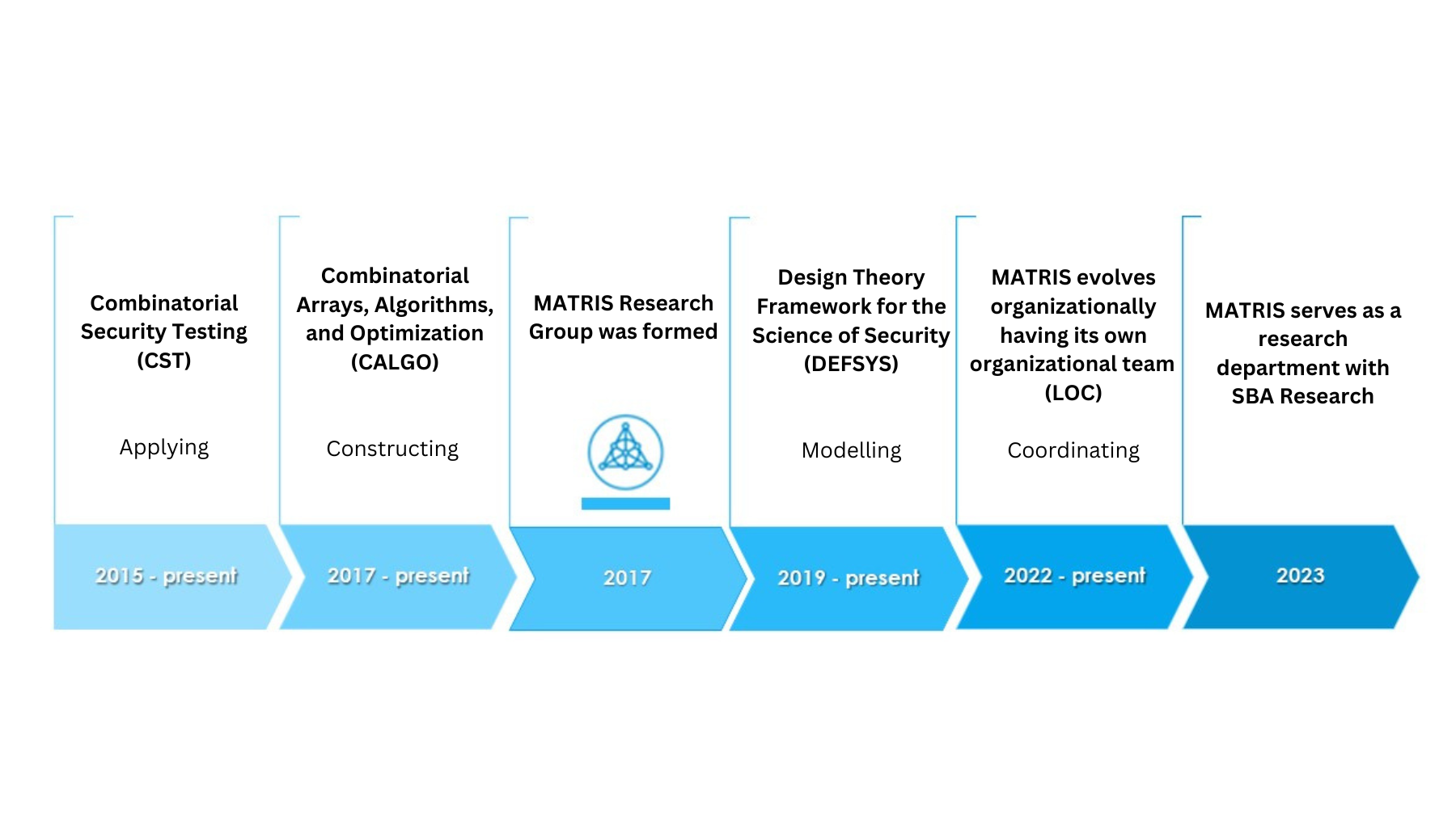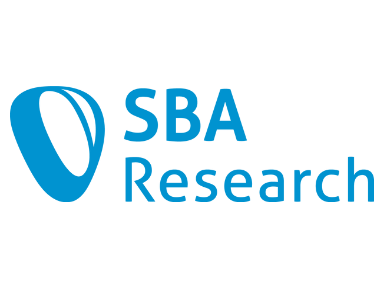Today, MATRIS Research Group serves as a research department with SBA Research. However, the journey of MATRIS started in 2015 at SBA Research as a small yet elite research team. As the team has been focusing on combinatorial security testing, they adopted their principal research focus as their name: Combinatorial Security Testing (CST). Along with various successful national research projects, the team became a partner in the first strategic joint research project of MATRIS with NIST, USA and IST, TU Graz. Since 2015, CST has been researching, optimizing, and developing novel tools and research prototypes for software security testing through combinatorial methods to perform black-box security testing as an effective and optimized alternative to commonly used stochastic approaches in black-box testing.
The growing research success of CST nonetheless initiated the necessity of advancement of the underlying mathematical structures and algorithms for testing. Hence, the Combinatorial Arrays, Algorithms, and Optimization (CALGO) team was established in 2017, leading to the formation of MATRIS. This union of two teams strengthened the teams’ novel research. Thus, MATRIS received additional research projects at the national level and its first research project with NIST: SENTINEL.

As the mission of MATRIS has been developing mathematical foundations and related primitives from the field of discrete mathematics and applying them to real-world problems of software testing and information security, MATRIS founded the team Design Theory Framework for the Science of Security. Thus, MATRIS became a research group expanding its horizon to emerging technologies such as IoT, fingerprinting, and AI.
Today, MATRIS maintains national, EU, and US research projects with various partners in academia, industry, and governmental research organizations. The group’s research and its success are the results of the interplaying of all three teams and their expertise, while CALGO’s research now functions as foundation of both CST’s and DEFSYS’ research.

